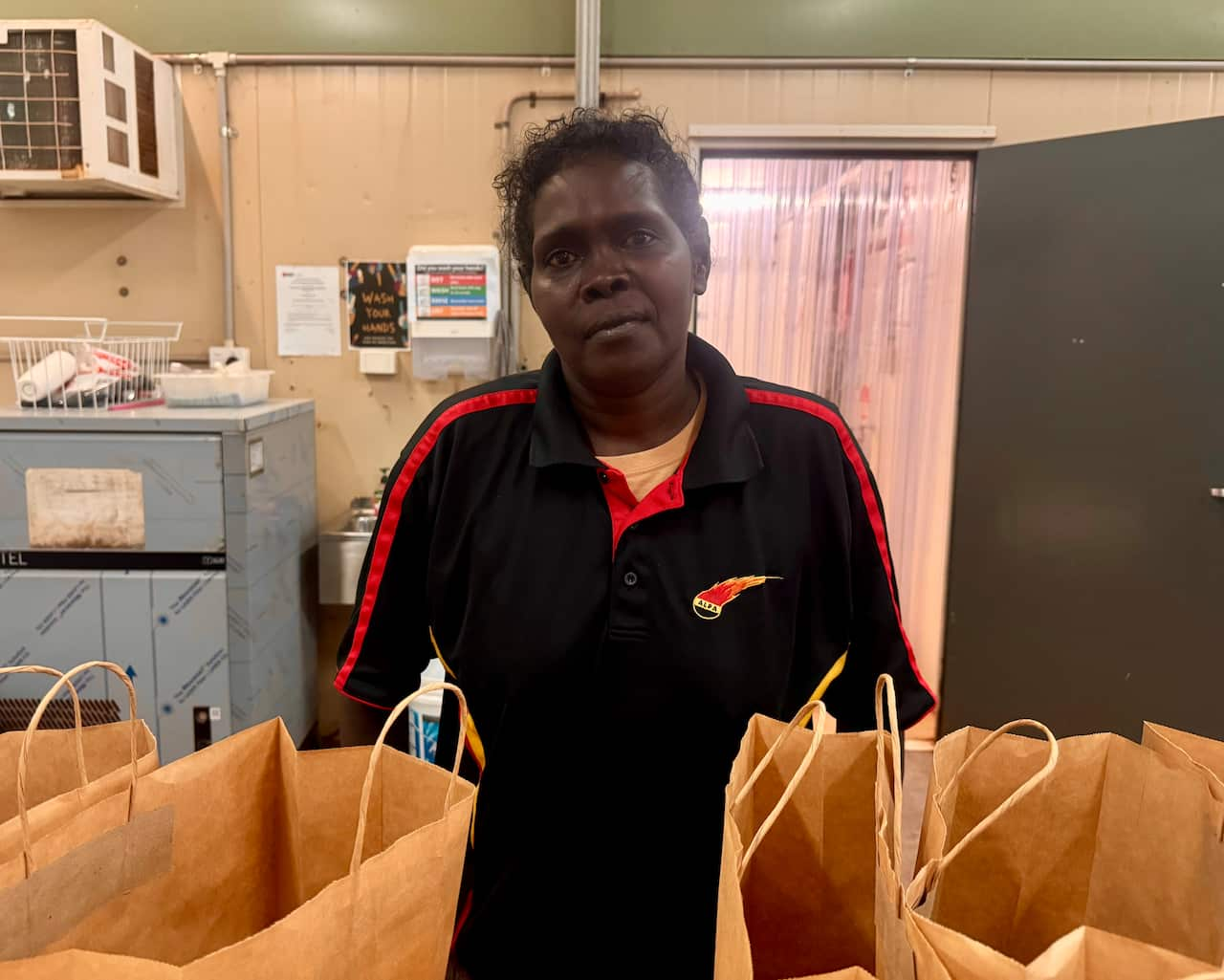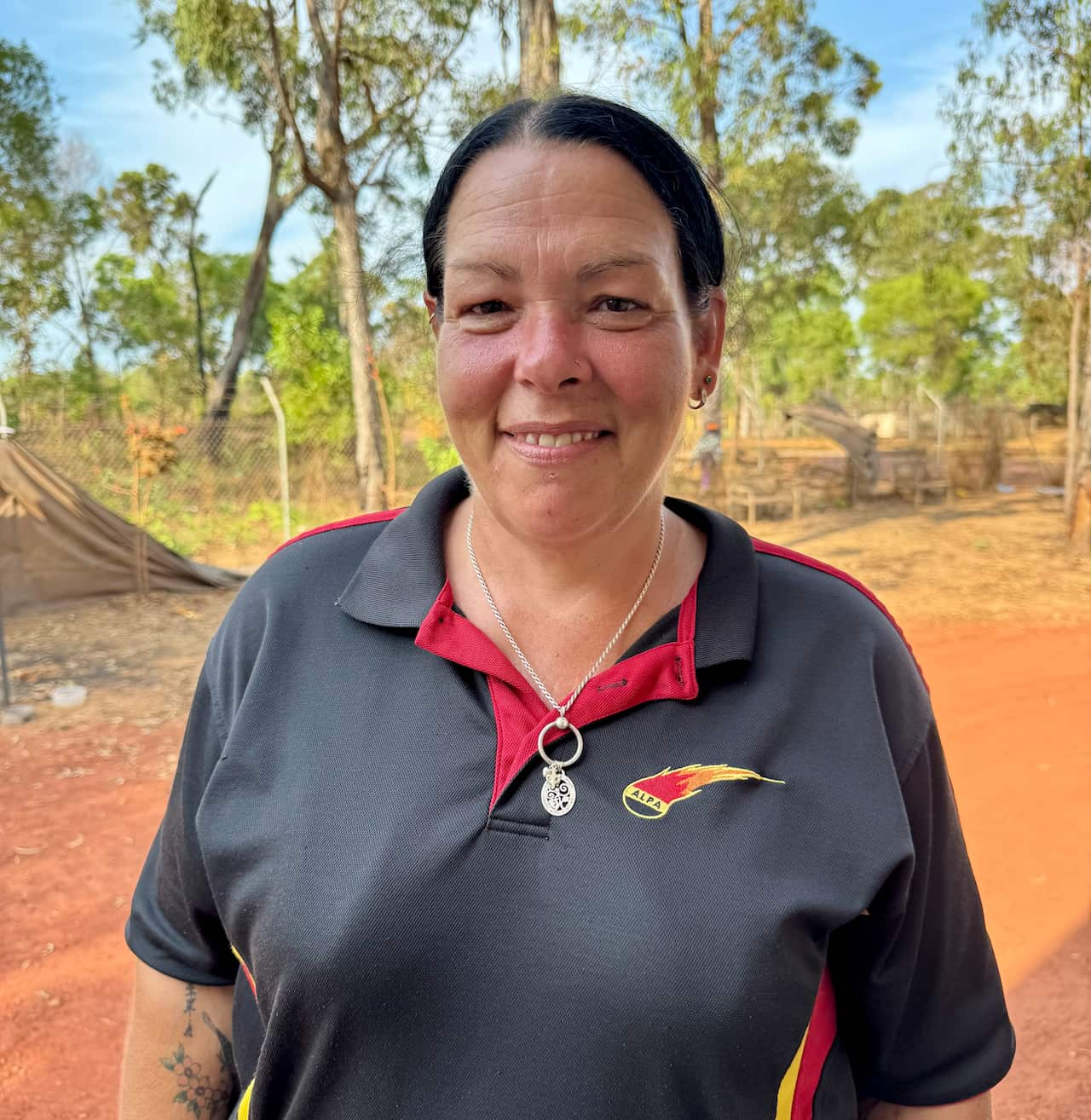Among the renowned rich red dirt of the Northern Territory's Arnhem Land region, a demountable building sits among the stringybark forest on the outskirts of Galiwin'ku's only town.
The remote island community is home to around 2000 people, and is one of the most remote regions of Australia's north, around 550 kilometers northeast of Darwin.
Vanessa Maymuru makes her way inside to the break room, the first to arrive from her cohort, quietly brewing herself a coffee before her shift starts.
"We just put our name and the time and start doing work," the Yolngu woman told NITV.
After three years of working at Miyalk Kitchen, it's a familiar routine.
The kitchen provides meals to local contractors, catering, and NDIS home delivery.
I really want to support my communityVanessa Maymuru, Yolngu woman
Vanessa is in charge of packing and delivering the food to community members participating in the NDIS food delivery program.
"It's good, I'm helping Yolngu people," Vanessa said.
Water, a sandwich, fruit, and a box of hot meals of chicken curry and lasagna are packed into a van, ready for the afternoon delivery run.
As a speaker of both Yolngu and English languages, Vanessa uses the delivery run as an opportunity to check in on the mostly Yolngu participants and report back to her balanda (non-Indigenous) supervisor if there are any issues.
"I really want to support my community," Vanessa said.

Creating jobs in remote communities
A lack of diverse job options, geographic isolation and barriers like limited access to training and transport are key challenges for people in remote NT seeking employment.
For Vanessa, this is the first time she has had "real work" that provides stable and ongoing employment.
"I feel good ... I'll always turn up," the 41-year-old said.
Vanessa is one of around 20 women being mentored through Miylak Kitchen — a commercial enterprise set up by the Arnhem Land Progress Aboriginal Corporation (ALPA).
The program is part of trials being run under the Australian Government's Community Development Program (CDP) reforms with the aim of providing long term training and employment for locals.

ALPA Galiwin'ku site manager Tammie Usher told NITV a key impact is building confidence in the participants.
"It's being able to support their family ... and being a part of their community," Ms Usher said.
"When you see they're turning up to work, working within their team, building that independence — that's where I think there is the skills that are really valuable and skills that can be transferred into other positions," Ms Usher said.
New remote jobs program
From November 1, CDP will be replaced with providers chosen to deliver the new Remote Australia Employment Service (RAES).
Minister for Indigenous Australians Malarndirri McCarthy said the RAES will be more flexible than the CDP, and communities will have a greater say in locally tailored solutions for job readiness that job seekers can participate in.
“We know the old CDP program left First Nations people stuck in cycles of poverty and failed remote communities, we’re getting on with replacing it," Minister McCarthy said in a statement.
“The Remote Australia Employment Service will see the co-design of projects with communities that are relevant and needed in remote areas.
"This is an opportunity to provide greater benefits not only to job seekers but also the wider community."

